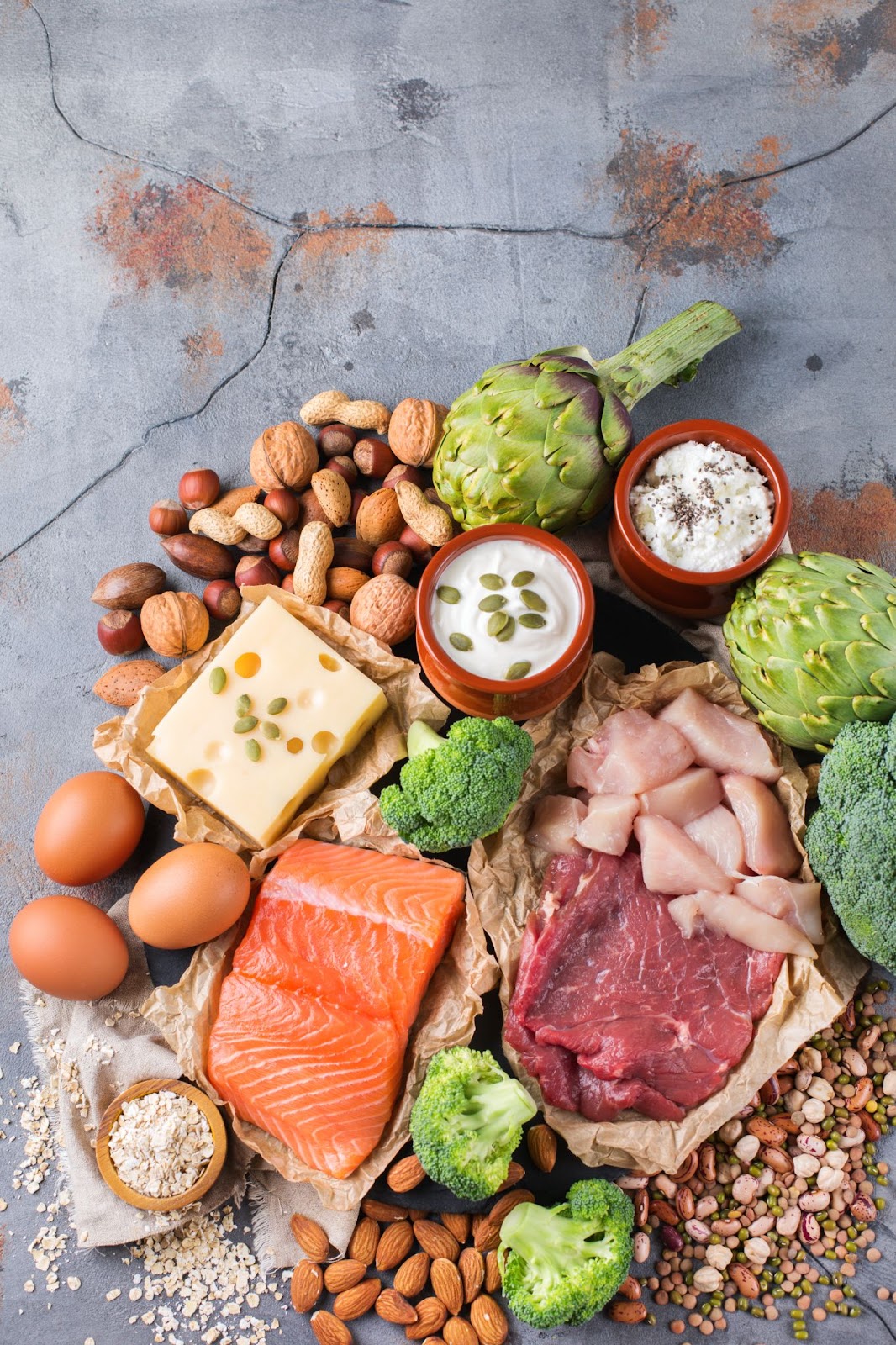Protein has emerged as a new sensation in today’s world, especially for people who are planning to change their body weight or trying to work out. As already mentioned, there are many options for what type of protein to consume, including natural sources and protein supplements.
This blog aims to provide insight into protein, make recommendations, and provide necessary information to distinguish natural protein from protein supplements and weight loss powders and enhance healthy living.

What is Protein, and its importance?
Protein is one of the macronutrients that man cannot do without in the body; it is essential for proper functioning. It is required for tissue construction and repair, synthesis of enzymes and hormones, for immune system strength. Amino acids are the building blocks of proteins that are required for multiple physiological activities. Protein intake is important for muscle maintenance, the satisfaction of hunger, and metabolism. Also, it should be noted that protein is necessary for growth and development and is especially beneficial in children and teenagers, as well as in post-surgery or post-illness treatment.
Key Importance of Protein:
- Tissue Repair and Growth: These are of paramount importance in rebuilding muscles, skin, and other body tissues.
- Enzyme Production: Protein also serves as a hormone and a catalyst or enzyme to speed up biochemical changes in the body.
- Hormonal Regulation: Some of the hormones discussed in this article are proteins or peptides, which control biological processes.
- Immune Function: Proteins are essential in manufacturing antibodies that combat infections.
- Satiety and Weight Management: Compared to low-protein diets, high-protein diets can increase feelings of satiety, which is important in managing body weight.
- Energy Source: Protein, as a macronutrient, is regarded as an energy-yielding nutrient in instances of energy deficiency from carbohydrates and fats.
What is Natural Protein?

Natural protein is an unaltered protein obtained from whole foods of animal and plant origin. Here’s a breakdown of these sources:
- Animal Sources
- Meat: It comprises beef, pork, and lamb.
- Poultry: Examples include chicken and turkey, while beef forms part of the red meats.
- Fish: Some of the varieties that are rich sources of omega-3 fatty acids include; salmon, tuna, and sardine.
- Eggs: Protein with some trace elements and all the nine essential amino acids.
- Dairy Products: Milk, cheese, and yogurt can offer quality protein and calcium.
- Plant Sources
- Legumes: Beans like black beans, kidney beans, and lentils are the best proteins to eat.
- Nuts: Almonds, walnuts ,and peanuts are good sources of protein as well as contain healthy fats.
- Seeds: Chia seeds, flaxseeds, and pumpkin seeds are full of nutrients; they are very useful for our health.
- Whole Grains: Quinoa, brown rice, and oats have protein and fiber ingredients.
Benefits of Natural Protein
- Nutrient-Rich: Virtually all whole-food protein sources contain vitamins and minerals that are essential for the human body.
- Satiety: Natural proteins are always better than processed supplements for satiety and reducing hunger levels.
- Balanced Nutrition: Protein taken in natural forms guarantees ingestion of different nutrients in the required ratio.
What are Protein Supplements?

Protein supplements are processed products designed to provide concentrated amounts of protein. They come in various forms, including:
- Whey Protein: A fast-digesting dairy protein ideal for post-workout recovery.
- Casein Protein: A slow-digesting dairy protein that steadily releases amino acids.
- Plant-Based Proteins: These are pea, rice, or hemp protein powders that are suitable for vegans or those with lactose intolerance.
Benefits of Protein Supplements
- Convenience: Easy to prepare and consume, making them ideal for busy lifestyles.
- Targeted Intake: Allows individuals to easily increase their protein intake without consuming large quantities of food.
- Variety: Many flavors and formulations suit different tastes and dietary preferences.
Natural Protein vs. Protein Supplements

Natural protein sources are a part of every functional diet because it is far more favorable than processed protein products.
- Nutritional Profile
Essential proteins derived from whole foods like legumes, nuts, seeds, and animal meats deliver diverse nutrients compared to most supplements. Protein supplements, as we know, provide concentrated protein, but they lack vitamins and minerals that the body requires to maintain good health. For instance, foods rich in natural protein also contain fibers, anti-oxidants, and phytonutrients that help with other body functions and the digestion of nutrients.
- Digestibility
Another important consideration again in favor of whole-food protein is digestibility. Surprisingly, many claim natural proteins are easier to assimilate than processed powders. This could be especially true if you get upset stomachs from protein supplements, which could be full of additives or processed beyond recognizable form. Fiber content in whole foods, too, enhances digestion and leads to good stomach health.
- Long-Term Sustainability
Introducing natural protein into one’s diet promotes more sustainable meals. People often rely on supplements or products to supply them with the nutrients they require while relying heavily on processed food products. The protein sources are chosen so that different meals can be prepared using whole and natural foods while also satisfying the principle of high environmental impact.
| Criteria | Whole Natural Food Protein | Processed Protein Supplements |
| Nutritional Range | YES | NO |
| Digestibility | YES | Sometimes |
| Promotes Sustainable Habits | YES | NO |
So, it can be beneficial if opting for natural proteins over supplements, which can enhance nutritional intake, improve digestibility, and promote sustainable dietary practices. Yet, it is more preferred and recommended to consult with your weight loss professional doctor.
FAQs
- Can I get enough protein from natural food sources alone?
Yes, many people can meet their protein needs through a balanced diet rich in natural sources without supplements.
- Are protein supplements effective for weight loss?
Yes, they can aid in weight loss by promoting satiety and preserving lean muscle mass during calorie restriction. But consult with your doctor for any such changes to your diet plans.
- How much protein do I need daily?
The recommended daily intake varies based on individual goals but generally ranges from 0.8 to 1.2 grams per kilogram of body weight for most adults.
- What are the potential side effects of protein supplements?
Some individuals may experience digestive issues or allergic reactions; choosing high-quality products is essential.
- How do I choose the right protein supplement if I use one?
Look for high-quality ingredients with minimal additives that suit your dietary restrictions (e.g., lactose-free or vegan). It is highly recommended that you consult with an expert for a more holistic approach and medical aspects.
- Can I mix natural proteins with supplements?
Yes, combining both can be beneficial; however, balance is key to avoiding excessive protein intake. For more in-depth, personalized, and professional advice, consult with Dr. Salma, the weight loss specialist.
- What are some good natural sources of protein?
Excellent sources include chicken, fish, eggs, dairy products, beans, lentils, tofu, nuts, and seeds.
- How do I incorporate more protein into my diet without supplements?
Focus on adding high-protein foods to each meal and snack; consider options like Greek yogurt, cottage cheese, lean meats, legumes, and nut butter.
- Can weight loss powders replace meals?
The Weight Loss Revolution suggests that it’s important to maintain a balanced diet that includes whole foods for overall health.
Final Thoughts
Choosing between natural proteins and protein supplements depends on individual preferences, lifestyle factors, and specific weight loss and health goals. While natural proteins offer a wealth of nutrients and satiety benefits, supplements can provide convenience and targeted intake when needed. For those aiming for weight loss or enhanced fitness levels, understanding the role of each option will empower you to make informed decisions that support your journey toward better health.
Bibliography
- Phillips, S.M., & Van Loon, L.J.C. (2011). “Dietary Protein for Athletes: From Requirements to Metabolic Advantage.” Applied Physiology, Nutrition, and Metabolism, 36(5), 647-663.
- Pasiakos, S.M., et al. (2013). “Protein Supplementation Increases Lean Body Mass but Not Muscle Strength During Resistance Exercise Training in Older Adults.” The Journal of Nutrition, 143(9), 1450-1456.
- Tang, J.E., et al. (2009). “Ingestion of Casein and Whey Proteins Result in Different Patterns of Protein Synthesis.” Journal of Nutrition, 139(5), 1028S-1032S.
- Messina, M., & Lynch, H. (2017). “Soy Protein Isolate Consumption Improves Lipid Profiles in Adults.” Nutrition Reviews, 75(10), 793-804.
- “Protein Powder Guide.” (2022). Healthline. Retrieved from Healthline.
